-
 Bitcoin
Bitcoin $76,479.4701
-3.52% -
 Ethereum
Ethereum $1,469.1142
-5.46% -
 Tether USDt
Tether USDt $0.9993
-0.03% -
 XRP
XRP $1.7902
-4.83% -
 BNB
BNB $551.0674
-0.78% -
 USDC
USDC $1.0003
0.02% -
 Solana
Solana $105.4201
-1.56% -
 TRON
TRON $0.2301
0.50% -
 Dogecoin
Dogecoin $0.1423
-4.38% -
 Cardano
Cardano $0.5589
-4.51% -
 UNUS SED LEO
UNUS SED LEO $9.0173
0.56% -
 Toncoin
Toncoin $3.0027
-2.56% -
 Chainlink
Chainlink $10.9146
-4.73% -
 Stellar
Stellar $0.2207
-4.45% -
 Avalanche
Avalanche $16.1527
-4.24% -
 Shiba Inu
Shiba Inu $0.0...01066
-6.81% -
 Sui
Sui $1.9318
-3.99% -
 Hedera
Hedera $0.1462
-4.08% -
 MANTRA
MANTRA $6.2098
-1.18% -
 Dai
Dai $1.0001
0.01% -
 Bitcoin Cash
Bitcoin Cash $268.3547
-2.84% -
 Polkadot
Polkadot $3.3678
-6.32% -
 Litecoin
Litecoin $69.1437
-2.09% -
 Ethena USDe
Ethena USDe $0.9986
-0.03% -
 Bitget Token
Bitget Token $3.9888
-4.59% -
 Hyperliquid
Hyperliquid $11.6557
0.72% -
 Pi
Pi $0.5672
-1.97% -
 Monero
Monero $196.0247
-4.01% -
 OKB
OKB $51.1597
0.14% -
 Uniswap
Uniswap $4.7818
-6.32%
How does NFT Marketplaces promote the trading and circulation of NFTs?
NFT marketplaces drive NFT trading via user-friendly interfaces, secure escrow services, diverse payment options, curated collections, influencer marketing, and niche specialization, fostering a vibrant and accessible ecosystem.
Mar 02, 2025 at 05:48 pm
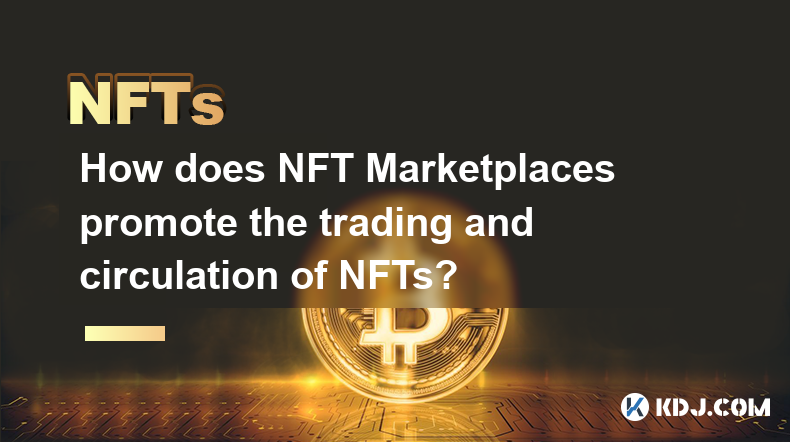
Key Points:
- NFT marketplaces act as centralized platforms facilitating NFT discovery, listing, and trading.
- They provide crucial infrastructure for secure transactions, including escrow services and payment processing.
- Marketing and community features drive NFT discoverability and increase trading volume.
- Different marketplaces cater to specific NFT niches and target audiences.
- The role of curated collections and influencer marketing significantly boosts visibility.
How do NFT Marketplaces Promote the Trading and Circulation of NFTs?
NFT marketplaces are the lifeblood of the NFT ecosystem, acting as central hubs for the buying, selling, and trading of non-fungible tokens. They provide the necessary infrastructure and tools to make the process smooth and secure for both buyers and sellers. Without these platforms, the NFT market would be significantly hampered, making it far more difficult to discover and trade NFTs.
One of the primary ways marketplaces promote NFT trading is through their user-friendly interfaces. These platforms simplify the complex process of purchasing and selling NFTs, making it accessible to a wider audience. Clear listings, detailed descriptions, and high-quality images help users easily browse and find the NFTs they are interested in. This improved accessibility is crucial for expanding the overall market.
Furthermore, marketplaces often incorporate escrow services to ensure secure transactions. This system holds the funds in a neutral account until both parties have fulfilled their obligations. This crucial safeguard protects buyers from scams and sellers from non-payment, fostering trust and confidence within the marketplace. This security is vital for encouraging wider participation.
The integration of various payment methods is another key feature that promotes trading. Most marketplaces support various cryptocurrencies, allowing buyers to use their preferred digital assets. This flexibility caters to a broader range of users and simplifies the payment process, making the buying and selling of NFTs more convenient.
Beyond the transactional aspects, NFT marketplaces actively promote trading and circulation through marketing and community features. Many platforms host curated collections, highlighting notable artists and projects. This targeted approach exposes users to a wider variety of NFTs, fostering interest and potentially leading to increased purchases. This curated approach helps shape trends and discoverability.
Influencer marketing also plays a significant role. Marketplaces often collaborate with prominent figures in the NFT space to promote new collections and drive traffic to their platform. This marketing strategy leverages the influence of key figures within the community to boost visibility and create hype around specific NFTs. This increased awareness can significantly impact trading volumes.
Different NFT marketplaces cater to various niches and audiences. Some focus on digital art, while others specialize in gaming NFTs, collectibles, or metaverse assets. This specialization creates a more targeted environment, bringing together buyers and sellers with similar interests. This segmentation allows for specialized marketing and community building.
The features offered by each marketplace also vary. Some may prioritize low transaction fees, while others emphasize robust community features, such as forums or social integration. These variations cater to the specific needs and preferences of different user groups, encouraging a more diverse and vibrant market. Market choice is dictated by user needs and platform functionality.
The successful promotion of NFT trading and circulation relies heavily on the platform's ability to foster a thriving community. Marketplaces that prioritize user experience, offer strong security measures, and provide a platform for creators to connect with collectors are best positioned for long-term success. This community aspect fosters organic growth and sustained engagement.
Building trust and reputation is crucial. A platform's credibility directly influences the confidence of buyers and sellers. This confidence is crucial for building a healthy and liquid market. A positive reputation encourages participation and drives trading volume.
Frequently Asked Questions:
Q: How are NFTs listed on marketplaces?
A: NFT creators typically upload their digital assets to the marketplace, providing relevant information such as descriptions, images, and pricing. The process usually involves connecting a crypto wallet to the marketplace and paying a listing fee, which varies depending on the platform.
Q: What are the typical fees associated with NFT marketplaces?
A: Marketplaces usually charge fees for both buyers and sellers. These fees typically include a transaction fee (a percentage of the sale price) and potentially a listing fee. The specific fees and fee structure vary greatly depending on the marketplace.
Q: How do I choose the right NFT marketplace?
A: The best marketplace for you will depend on your specific needs and priorities. Consider factors such as the types of NFTs offered, transaction fees, the platform's security features, and the size and activity of its community.
Q: Are NFT marketplaces secure?
A: Reputable NFT marketplaces employ robust security measures to protect users from scams and fraud. However, it's crucial to always be cautious and verify the legitimacy of any marketplace before using it. Thorough due diligence is vital before engaging in any transaction.
Q: What are the risks involved in trading NFTs on marketplaces?
A: Risks include scams, phishing attempts, and the volatility of the cryptocurrency market. The value of NFTs can fluctuate significantly, and there is always a risk of losing money. Understanding these risks is critical before investing.
Q: How do NFT marketplaces handle disputes between buyers and sellers?
A: Most reputable marketplaces have dispute resolution mechanisms in place. These mechanisms often involve mediation or arbitration to help resolve conflicts between buyers and sellers fairly. The specific process varies depending on the platform.
Disclaimer:info@kdj.com
The information provided is not trading advice. kdj.com does not assume any responsibility for any investments made based on the information provided in this article. Cryptocurrencies are highly volatile and it is highly recommended that you invest with caution after thorough research!
If you believe that the content used on this website infringes your copyright, please contact us immediately (info@kdj.com) and we will delete it promptly.
- "Cardano (ADA) Price Could Dip Below $0.60, Following Previous Market Cycle"
- 2025-04-09 05:10:12
- BONK, the well-known meme coin, has risen over 35% in the last week, attracting meme coin investors in the market. So, what caused this rally?
- 2025-04-09 05:10:12
- Bitcoin (BTC) Investors May Not Exactly Feel It, but BTC Has Been a Relatively Good Bet
- 2025-04-09 05:05:12
- Donald's Bitcoin (DONBTC) Could Turn Early Investors into Multi-Millionaires, Like Shiba Inu (SHIB) and Dogecoin (DOGE) Did
- 2025-04-09 05:05:12
- 6 Upcoming Kraken Listings That Could Be the Next Big Thing in Crypto
- 2025-04-09 05:00:13
- COTI Unveils New Privacy-Focused Blockchain to Reshape Web3 Transactions
- 2025-04-09 05:00:13
Related knowledge
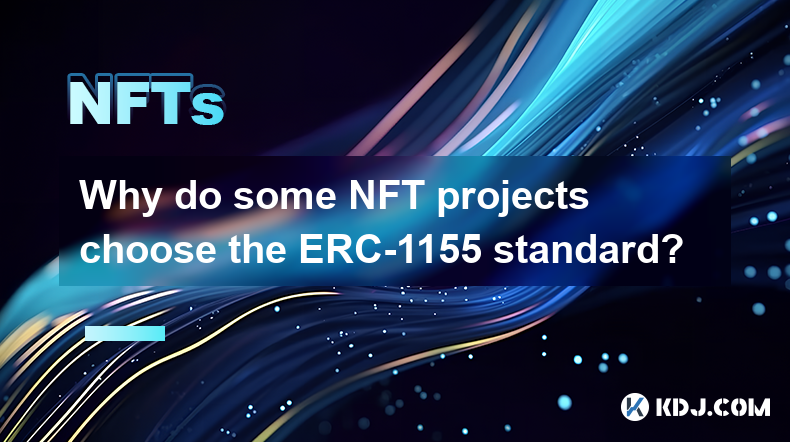
Why do some NFT projects choose the ERC-1155 standard?
Apr 08,2025 at 11:49am
The world of Non-Fungible Tokens (NFTs) has seen a significant rise in popularity and innovation, leading to the development of various token standards. Among these, the ERC-1155 standard has emerged as a versatile and efficient choice for many NFT projects. This article delves into the reasons why some NFT projects opt for the ERC-1155 standard, explor...
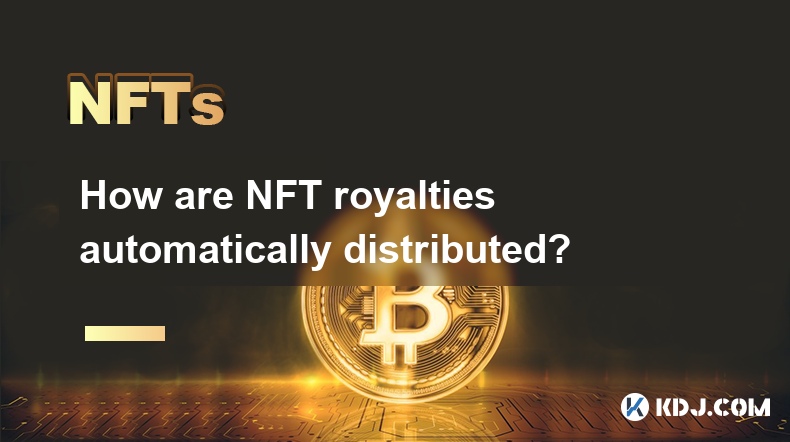
How are NFT royalties automatically distributed?
Apr 08,2025 at 08:14pm
NFTs, or Non-Fungible Tokens, have revolutionized the digital art and collectibles market by providing a way to prove ownership and authenticity of digital assets. One of the most intriguing features of NFTs is the ability to automatically distribute royalties to creators whenever their work is resold. This article will delve into the mechanisms behind ...
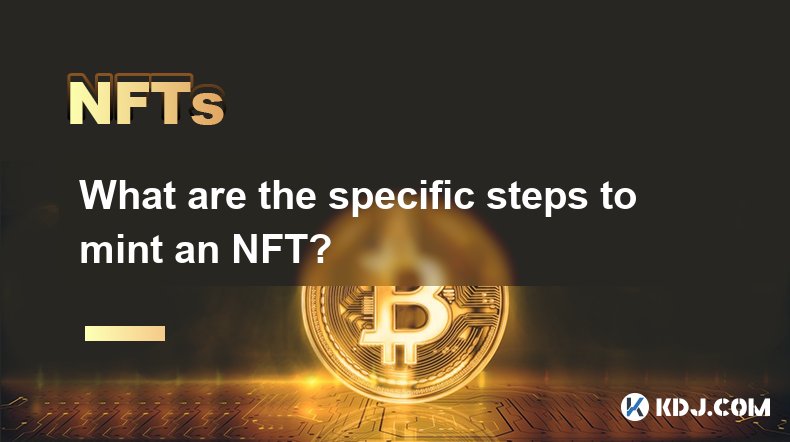
What are the specific steps to mint an NFT?
Apr 08,2025 at 05:22pm
Introduction to NFT MintingMinting an NFT, or Non-Fungible Token, involves creating a unique digital asset on a blockchain. This process allows artists, creators, and collectors to tokenize their work, ensuring its authenticity and ownership. Understanding the steps to mint an NFT is crucial for anyone looking to enter the world of digital collectibles....
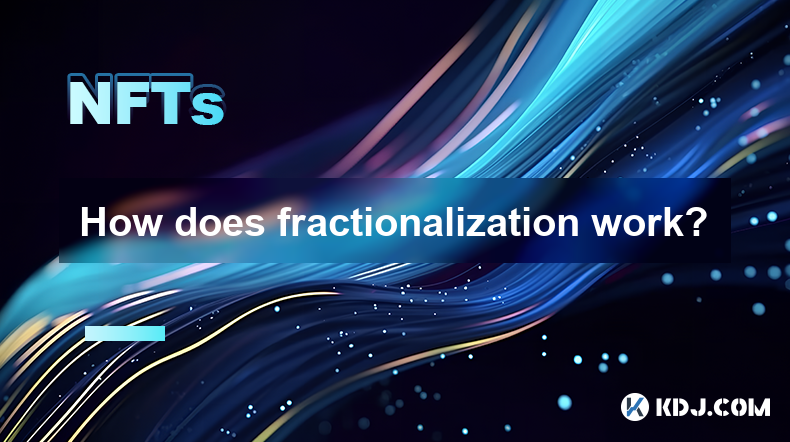
How does fractionalization work?
Apr 08,2025 at 07:42pm
How does fractionalization work? Fractionalization in the context of cryptocurrencies and blockchain technology refers to the process of dividing a single asset into smaller, more manageable pieces. This concept has revolutionized the way investors and users interact with high-value assets, making them more accessible and liquid. In this article, we wil...
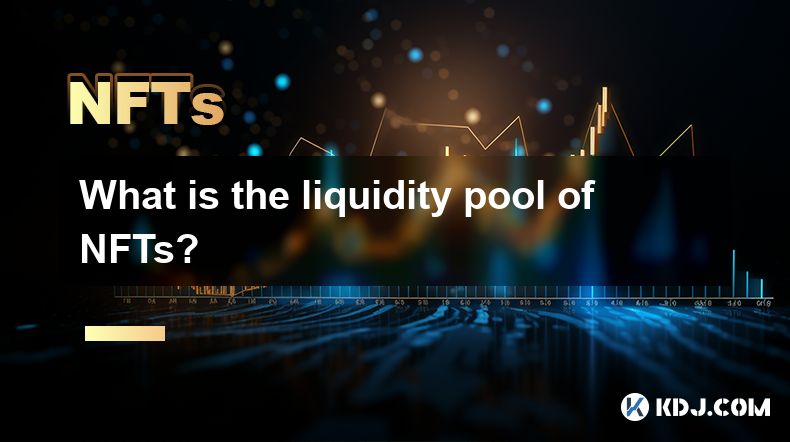
What is the liquidity pool of NFTs?
Apr 08,2025 at 05:35pm
The concept of liquidity pools has become increasingly popular within the cryptocurrency and decentralized finance (DeFi) ecosystems. While traditionally associated with token swaps, the idea has extended to the realm of Non-Fungible Tokens (NFTs). Liquidity pools for NFTs are mechanisms that facilitate the trading and exchange of these unique digital a...
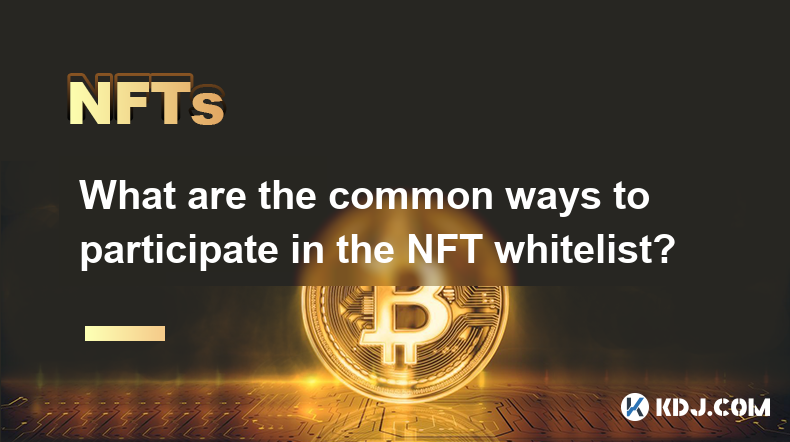
What are the common ways to participate in the NFT whitelist?
Apr 08,2025 at 08:28pm
Participating in an NFT whitelist can be an exciting opportunity for enthusiasts and investors looking to secure their spot in upcoming NFT drops. The whitelist often grants early access or special privileges, such as lower minting fees or guaranteed allocations. Here, we will explore the common ways to participate in an NFT whitelist, detailing each me...

Why do some NFT projects choose the ERC-1155 standard?
Apr 08,2025 at 11:49am
The world of Non-Fungible Tokens (NFTs) has seen a significant rise in popularity and innovation, leading to the development of various token standards. Among these, the ERC-1155 standard has emerged as a versatile and efficient choice for many NFT projects. This article delves into the reasons why some NFT projects opt for the ERC-1155 standard, explor...

How are NFT royalties automatically distributed?
Apr 08,2025 at 08:14pm
NFTs, or Non-Fungible Tokens, have revolutionized the digital art and collectibles market by providing a way to prove ownership and authenticity of digital assets. One of the most intriguing features of NFTs is the ability to automatically distribute royalties to creators whenever their work is resold. This article will delve into the mechanisms behind ...

What are the specific steps to mint an NFT?
Apr 08,2025 at 05:22pm
Introduction to NFT MintingMinting an NFT, or Non-Fungible Token, involves creating a unique digital asset on a blockchain. This process allows artists, creators, and collectors to tokenize their work, ensuring its authenticity and ownership. Understanding the steps to mint an NFT is crucial for anyone looking to enter the world of digital collectibles....

How does fractionalization work?
Apr 08,2025 at 07:42pm
How does fractionalization work? Fractionalization in the context of cryptocurrencies and blockchain technology refers to the process of dividing a single asset into smaller, more manageable pieces. This concept has revolutionized the way investors and users interact with high-value assets, making them more accessible and liquid. In this article, we wil...

What is the liquidity pool of NFTs?
Apr 08,2025 at 05:35pm
The concept of liquidity pools has become increasingly popular within the cryptocurrency and decentralized finance (DeFi) ecosystems. While traditionally associated with token swaps, the idea has extended to the realm of Non-Fungible Tokens (NFTs). Liquidity pools for NFTs are mechanisms that facilitate the trading and exchange of these unique digital a...

What are the common ways to participate in the NFT whitelist?
Apr 08,2025 at 08:28pm
Participating in an NFT whitelist can be an exciting opportunity for enthusiasts and investors looking to secure their spot in upcoming NFT drops. The whitelist often grants early access or special privileges, such as lower minting fees or guaranteed allocations. Here, we will explore the common ways to participate in an NFT whitelist, detailing each me...
See all articles






















































































